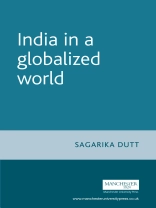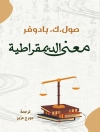This book looks at India in the context of a globalized world. It starts by looking at the history of Indian civilization, exploring the roots of Indian identity and highlighting processes such as foreign invasions, foreign trade, cultural imperialism, colonial rule and the growth of Indian nationalism. The book examines the gradual democratization of Indian politics.
Cultural and ethnic divisions in Indian society are examined in depth, as are the problems that have prevented economic development and stood in the way of economic liberalization. The history of India’s integration into the global economy is considered, and the opportunities available to the country in the early years of the 21st century are detailed. The final chapters consider the Indian government’s perception of the Indian diaspora, as well as the changing priorities reflected in India’s foreign policy since 1947.
قائمة المحتويات
Introduction: globalisation theory and India
1. A brief history of the Indian sub-continent up to independence (1947)
2. The democratization of Indian politics
3. Identity and the Indian state
4. Economic development: from import substitution industrialisation to economic liberalization
5. India in the global (political) economy
6. Alternative approaches to development
7. A nation on the move: the Indian diaspora
8. Indian foreign policy and global politics
Conclusion: globalization and beyond
Bibliography
عن المؤلف
Sagarika Dutt is Lecturer in International Relations at the Nottingham Trent University












